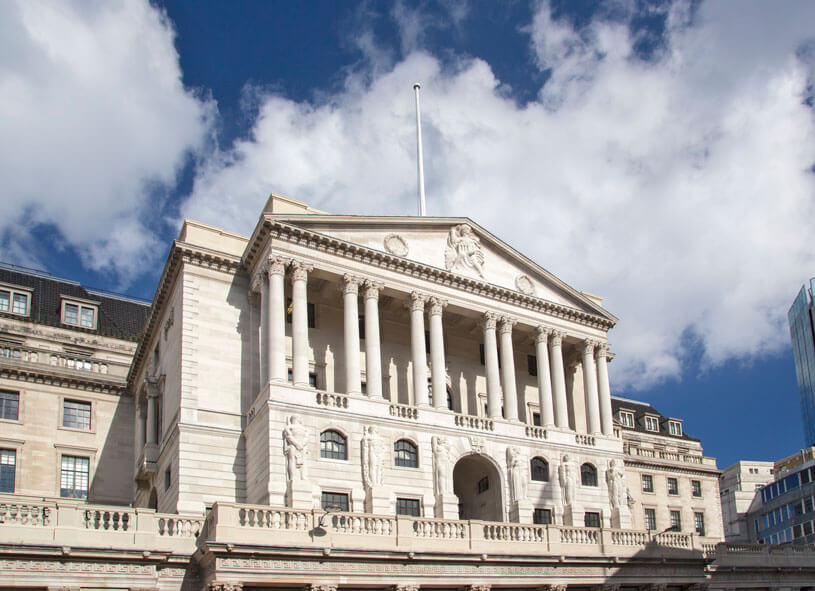The Bank of England base rate has a significant impact on the economy in the UK – and a direct effect on the cost of doing business.
The Bank of England Monetary Policy Committee meets several times a year to decide on the base interest rate. Learn how this affects your business and what you can do to prepare for higher interest rates.
What is the Bank of England base rate?
The Bank of England (BoE) base rate is set by the UK’s central bank. This is the rate that high street banks and other commercial lenders use when setting their own interest rates.
The Monetary Policy Committee meets eight times a year, where the committee votes on any changes to the base rate.
By setting the base rate, the Bank of England can respond to changes in the UK economy.
What is the current BoE base rate?
The current Bank of England base rate is 4.25 per cent, having peaked at 5.25 per cent in 2024.
Will interest rates go down?
Now that inflation is closer to the Bank of England’s target of two per cent, there’s hope that interest rates will gradually come down.
After being at 5.25 per cent for a year, interest rates began to fall from August 2024 and have since been reduced to 4.25 per cent. But Andrew Bailey, the governor of the Bank of England, has been cautious about interest rates dropping too quickly.
Andrew Bailey said: “we think a gradual approach to future interest rate cuts remains right” and that the Bank of England couldn’t “commit to when, or by how much, we will cut rates in the coming year”.
When is the next interest rate decision?
The next Bank of England interest rate decision will be on 19 June 2025.
What do interest rates mean for businesses?
Interest rates signal how much it costs to borrow money, as well as how much savers can earn by putting money aside.
Interest rates are important for businesses, as funding often comes in the form of borrowing money. When interest rates rise, things like small business loans become more expensive. It also means more expensive mortgages.
Changes in interest rates can also affect consumer behaviour. Higher interest rates encourage saving rather than spending and are typically used in response to increasing inflation.
When the cost of goods rises due to pressures on demand, higher interest rates help relieve that pressure (in theory), as consumers hold fire on spending and taking on more debt.
We’ve mentioned ‘interest rates’ as lenders set their own rates based on a range of factors, for example the risk of not being paid back on time.
But, as explained above, it’s also important for small businesses to keep an eye on the Bank of England base rate.
How businesses can respond to the Bank of England base rate
The wider economy is challenging right now, which means businesses may need to revisit their business plan and pivot their strategy in response.
While what you do will vary depending on the specifics of your trade and business, here are some tips for responding to Bank of England base rate changes:
- check your existing borrowing – it’s worth having a look at your terms and conditions to see how quickly base rate changes might affect your business, speaking to your bank if you’re not sure
- think about plans for future borrowing – if you’re wondering about financing growth, you’ll need to consider what a higher interest rate environment means for those plans – and make changes as necessary
- revisit your cash flow forecast – as well as affecting your own repayments, changes in the broader economy impact consumer behaviour, so you may need to revise your forecast – then you’ll have up-to-date information to influence your strategy
- assess your supply chain – higher interest rates affect all the businesses and clients you work with, so try to spot any problems in advance – for example, could agreeing on contracts before rates rise help fix your own costs for the foreseeable future?
Useful guides for small business owners
- How to budget: a calculator and guide for the self-employed
- How to complete a profit and loss statement for your business
- How to write an invoice
- What is business insurance?
Ready to set up your cover?
As one of the UK’s biggest business insurance providers, we specialise in public liability insurance and protect more trades than anybody else. Why not take a look now and build a quick, tailored quote?
